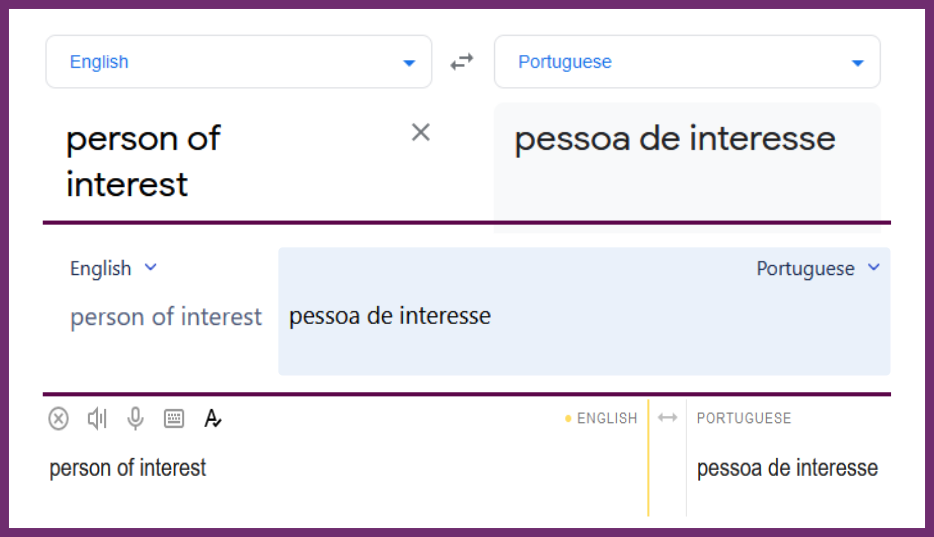In the world of translation, being deceived by a term we find on the Internet can be fatal.

We all know appearances can be deceiving, and most of us have probably been tricked this way at one time or another! However, in the world of translation, being deceived by the way something looks, such as a translated term we find on the Internet, can be fatal, figuratively speaking. A single oversight in this regard could lead to mistakes that ruin your standing as a respected translator.
Being fooled by the 'appearance of words' happens when we let our guard down while working on a translation under pressure.
Replicating and Perpetuating Errors

For example, you might be willing to accept a given translation simply because a lot of websites list the same definition and if everybody says this is the way it is, then it must be right.

That's when you're in danger of falling victim to what we call
error replication and perpetuation.
Let's say someone decides to post the translation of a word or expression in English on their website. It's there for everyone to see and use, free of charge. The translation is blatantly wrong, but the person believes it to be correct because it "looks good".
What happens next?
Those tireless search engine robots (working 24 hours a day) come along, scoop it up, and add it to the database as-is.
Over time, a lot of people search for the same translation and the browsers regurgitate what the robots had compiled, in this case, the wrong translation.
Countless other people then post the same translation on their websites, unaware of the problem, and before you know it, browsers that once showed a few hits begin showing thousands of instances of the same translation – and the error continues to be passed on and shared ad infinitum.

To show you what we mean, let's use the expression below.
PERSON OF INTEREST
The machine translations you find on the Internet translate PERSON OF INTEREST as
PESSOA DE INTERESSE.
See below:

Many other sites will give you the same translation

Now take a look at the definition given by a trusted source such as AVRO dx.

Person of interest: Pessoa sob suspeita | suspeito (alguém que ainda não foi acusado formalmente de um crime ou que ainda não foi preso, mas é identificado como suspeito = someone who has not yet been arrested and formally charged with a crime, but is considered a suspect).
Do you see the difference between a pseudotranslation and an authentic, well-thought-out translation that has been screened for accuracy?
That's what you get when you use AVRO dx.
AVRO dx is a comprehensive (English-Portuguese-English) reliable database containing over 250,000 primary entries, thousands of technical terms from all segments, over 3,700 pictures, plus helpful example sentences and explanations.
Visit www.avrodx.com, create an account, and start using AVRO dx right away FREE OF CHARGE for 30 days.